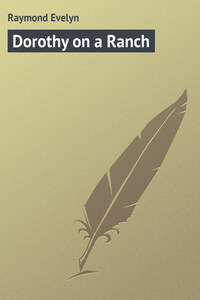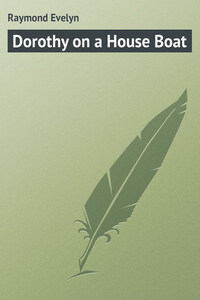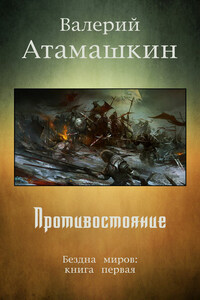CHAPTER I
HOW DOROTHY CAME
One spring morning Mrs. John Chester opened the front door of her little brick house and screamed. There, upon the marble step, stood a wicker baby-wagon with a baby in it; and, having received this peculiar greeting, the baby screamed, too. Then it laughed, Mrs. Chester laughed, and, hearing both the screams and the laughter, postman John Chester hurriedly set down his cup of coffee and ran to the doorway. In another instant he, also, was laughing. What childless, child-loving man could help doing so, beholding the pretty sight before him?
For Martha, his wife, had caught the little creature out of the wagon and was ecstatically hugging it, cooing to it, mothering it, as naturally as if this little one she was tossing up and down were not almost the first child she had ever so fondled.
"John! John! O John! It's meant! It's for us! See, see? The little card on its coat says: 'My name is Dorothy C. I have come to be your daughter.' Our daughter, John Chester! Oh! what a blessed gift! Who – who – can have sent her?"
Then John Chester stopped laughing and, laying his hand on his wife's shoulder with a protesting pressure, said:
"There, little woman, don't go building hopes on such a thing as this. Doubtless, some of the neighbors have left the little one here for a joke. If the good Lord has sent us no babies of our own it's not likely He'd put it into the hearts of others to give us theirs. It'll be called for before I get in from my rounds. Well, good-bye. Wish I could stay and play with the kid, but I'm late already. Good-bye."
As he stooped to kiss her, after his accustomed fashion, his cap touched the baby's cheek, pressed so close to Martha's, and with a frown and a twist Miss Dorothy C. put up her tiny hand and knocked it from his head. Then she wrinkled her funny little nose, laughed again, and from that instant the letter-carrier became her abject slave.
As he sped down the street, to take a car for the post-office and the morning mail he must deliver, he saw old Mrs. Cecil's carriage drive slowly around the corner. She was not "Mrs. Cecil" exactly, for there was more of her name upon her visiting cards: "Mrs. Cecil Somerset Calvert," and she was one of the proudest of old Maryland dames. But she was called by the shorter title by all sorts and conditions of people. She was on John Chester's route and quite often addressed him as "Johnnie," though Mrs. Martha resented this as being too familiar. In her own eyes John was the wisest and best man in the world, far too good to be called "Johnnie" like any schoolboy. The postman himself did not resent it. He resented very little that befell and simply trotted through life as he did over his mail-route, with a cheery word and smile for everybody. Therefore, it was quite characteristic that he should good-naturedly obey Mrs. Cecil's summons to come to her carriage, that she had ordered stopped, even though he was just boarding a car and had no time to waste.
"Johnnie, what was that I saw in your wife's arms, as I drove by?" she demanded as he came up.
"A baby. The cutest ever was. Somebody's playing a joke on us, leaving it on our steps."
"I shouldn't like that kind of a joke. Whose is it?"
"I don't know. I'll tell you more when I get round with the mail. Beg pardon, please, there comes another car," he replied, still smiling, although he was edging away as fast as he dared, without giving offense to this quick-tempered old lady.
"Shall you be fool enough to take the youngster in, if nobody calls for it? What salary do you get?" she continued, ignoring his evident reluctance to be further delayed.
He answered hastily, raised his cap, and managed to catch the next car, springing up on the rear platform while it was already in motion and reckoning that he would have to run, instead of trot, if he made up time and got his morning letters to those who expected them along with their breakfast.
As he disappeared Mrs. Cecil nodded her handsome white head a number of times, in satisfaction over something, and remarked to her poodle:
"Made no mistake. He's a straight man. Well, well, well! The idea of anybody being simpleton enough to be glad of the care of a squalling baby!"
Then she drove home to her own fine house, which stood at the junction of the broad avenue and the narrow street. As old Ephraim turned his horses into the spacious grounds a thrill of pride ran through his mistress's heart, while she shouted to her half-deaf coachman:
"Bellevieu never looked finer that it does this spring, boy."
To which the gray-headed "boy" echoed:
"Fine this spring, Miss Betty."
"Had another offer for the place yesterday, Ephraim."
"Dat so, Miss Betty? Grandes' place in Baltimo'," responded the other, who had heard but little of what she had said, but guessed sufficiently near to answer sympathetically. Indeed, he was fully as proud of the ancient estate as its present owner, and of the fact that, while he dwelt in the very heart of the southern city, his stables and appointments were quite as roomy as if an open country lay all about them. His "Miss Betty" and he were the last of the "family"; he considered Bellevieu as much his as hers; and, from his throne upon the antiquated Calvert carriage, looked with charitable contempt upon the drivers of less aristocratic vehicles.














